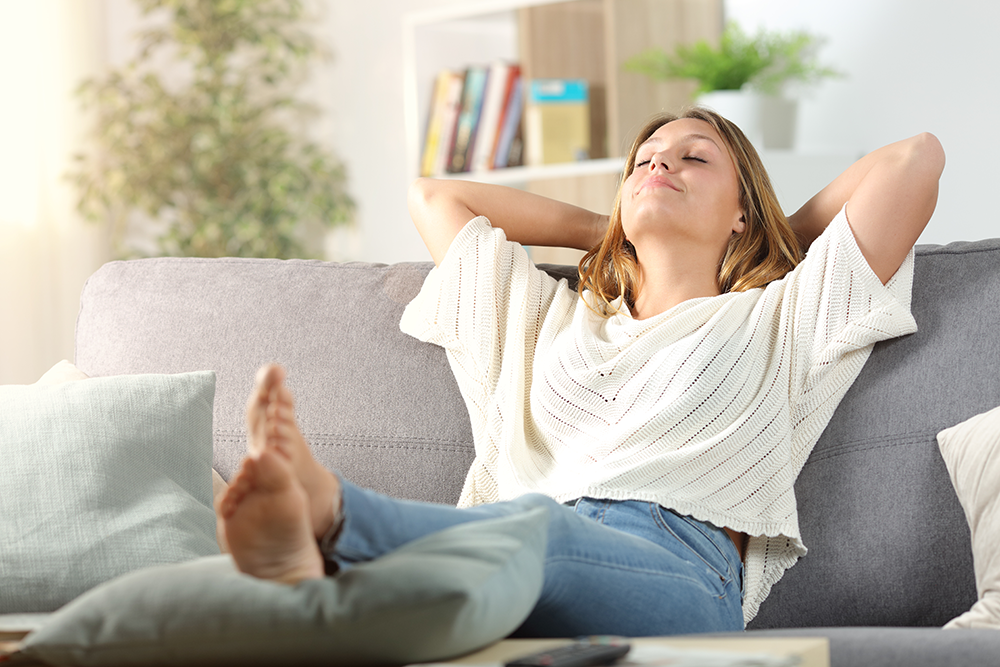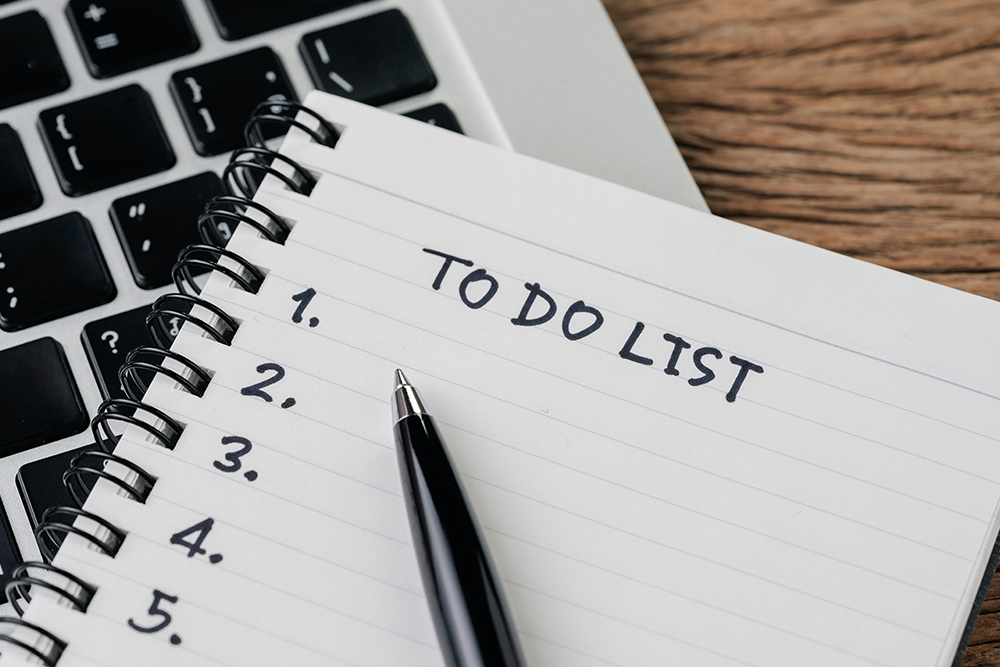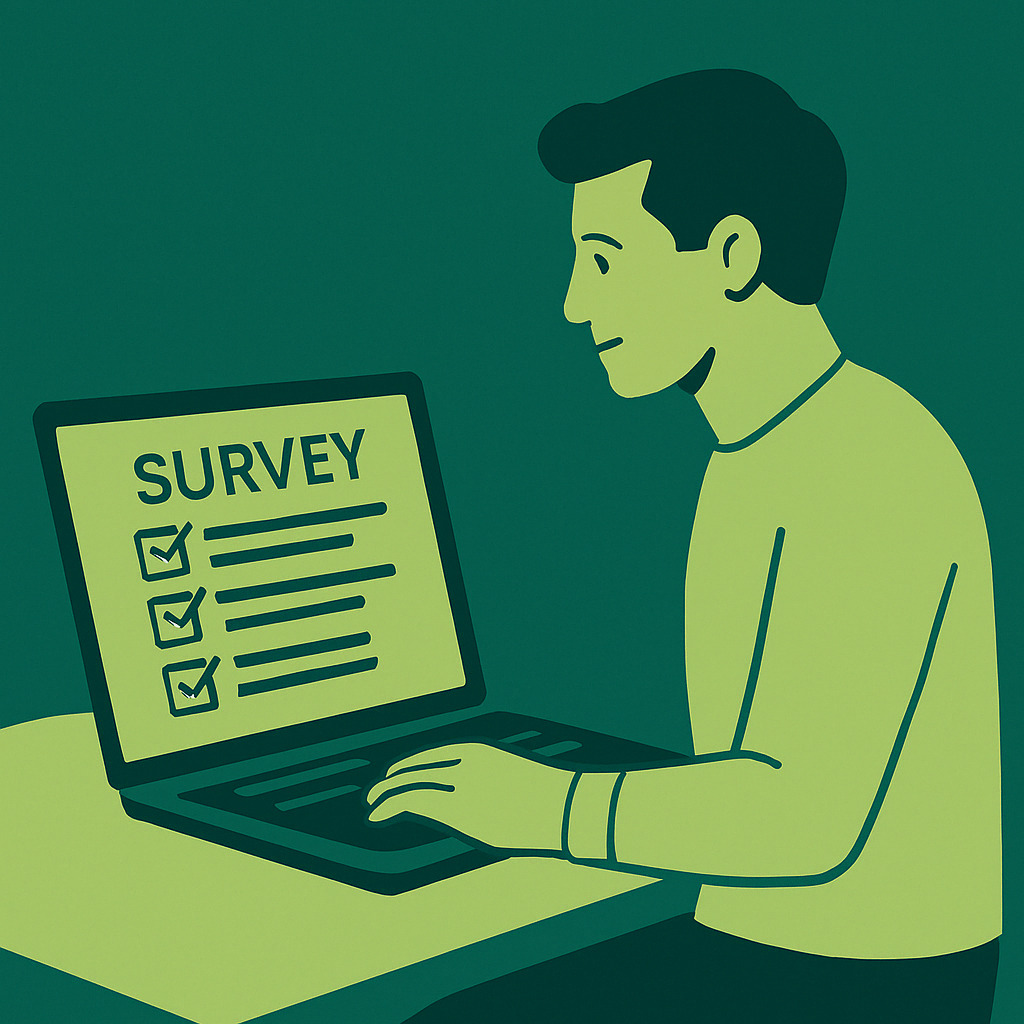
The problem of stress
Life can be filled with worries and pressures, which can cause you stress.
Stress is bad for your health. It causes both physical and mental symptoms — and can even change your behaviour.
How to recognise the signs of stress
You might be experiencing a build-up of stress if you’re:
- Having frequent headaches and body pains
- Having trouble sleeping
- Performing poorly at work
- Eating too much or too little
- Not wanting to go out or socialise
- Feeling tense and irritable.
Why is relaxation important?
Relaxation helps you create an outlet for any stresses and strains, so they don’t build up and become overwhelming.
When you learn to relax, you:
- Improve your general health
- Reduce your risk of stress-related illnesses
- Feel better and have a more positive outlook
- Think clearly and make better decisions
- Become more resilient and more able to cope with your daily demands.
How to relax
There’s no one-size-fits-all way to relax. That’s because different people find different things relaxing — and you need to find something that works for you.
Below, we’ve given you some ideas, with 18 simple ways to relax that you can try at home.
18 Simple ways to relax
For total relaxation, you need to relax your body and your mind. We’ll start with some simple ways to relax your body.
Ways to relax your body

1. Exercise
You might think exercise doesn’t sound very relaxing, but, actually, it can have a number of positive effects on your body.
During exercise and other physical activities, your body produces endorphins. These are natural chemicals in the brain that help relieve pain, reduce stress, help you sleep and improve your sense of wellbeing.
You can exercise in lots of ways — and you don’t need an expensive gym membership.
For example, you could:
- Go out for a walk or run
- Take a bike ride
- Do a workout at home
- Do some physical housework or gardening
- Visit a free outdoor gym
- Sign up to a sports team.
2. Deep breathing exercises
Deep breathing exercises can help calm you down if you’re feeling anxious or stressed. But they’re also something you can practise daily. And, with practice, they become easier and more natural.
Most breathing exercises take less than 10 minutes a day and can be done anywhere you feel comfortable. The best approach is to try different techniques and see which ones feel best for you.
3. Progressive muscle relaxation
Progressive muscle relaxation is all about tensing and relaxing your muscles. And it’s an effective way to relieve anxiety and help you sleep.
The best way to master the technique is to practise it daily for between 10 and 20 minutes.
4. Go for a walk outside
Spending time outdoors in nature can do wonders for your body and mind.
Being in green spaces with fresh air reduces stress and improves your mood. And regular exposure to sunlight helps regulate your sleep/wake cycle, so you sleep well at night and feel more energised during the day.
Walking is a beneficial, low-impact activity that people of all ages and fitness levels can enjoy.
Ways to relax your mind

5. Listen to music
Listening to music is pleasurable and makes you feel happy. Choosing slower tracks can slow down your heart rate and breathing, which might help if you’re feeling anxious.
Moving to the music or singing along helps to ground you in the present, which can stop you obsessing over the past or worrying about the future.
You can listen to music and do nothing else or choose a soundtrack to accompany a task or other activity you’re doing.
6. Watch your favourite movie or TV show
The familiarity of a favourite movie or TV show can be calming and comforting. Choosing something you’ve already seen means you know beforehand how it turns out and how it will make you feel — so you can just relax and enjoy it.
7. Read a book
Reading a book, or listening to an audiobook, is an escape into another world filled with different places and characters. It’s a mostly quiet activity that engages you and helps to relax your mind.
8. Daydream
Take a few moments to sit down, relax and daydream. If you’re wondering what to think about, try recalling some nice memories of places you’ve been and people you’ve enjoyed spending time with.
9. Call or visit a friend
Spending time with a friend can be relaxing and therapeutic. It’s a good chance to talk, reminisce about old times and catch up with all the latest developments.
10. Do a puzzle
Puzzles engage your brain and the concentration required to do them creates a sense of calmness and peace. Plus, completing a puzzle gives you a sense of achievement. There are lots of different puzzles you could try, including:
- Jigsaws
- Crosswords/word puzzles
- Sudoku
- Logic problems
- Solitaire card games
- Games for your tablet.
The most relaxing puzzles are ones you can do at your own pace and without a time limit. They should be challenging enough to engage your brain, but not so difficult you find them frustrating.
11. Write down your thoughts and feelings
If your thoughts and feelings sometimes become overwhelming and difficult to process, try writing them down. This is a way of admitting and accepting them. It can stop them spiralling out of control and help you get some perspective.
12. Try an adult colouring book
Adult colouring books have become more popular in recent years — and it’s easy to see why.
Focusing on a simple task, like colouring, is calming. It creates a state of deep relaxation, to help you switch off and unwind.
Productive ways to relax

You might feel most relaxed when you’re working towards achieving something.
13. Write a to-do list
If you’re feeling overwhelmed by all the things you have to do, try writing them down in a list and ticking off each one as you complete it.
Writing a to-do list will help you feel more organised and in control which, in turn, can help you feel more relaxed.
Keeping a list helps you remember everything you have to get done — and ticking off each task can be satisfying.
14. Learn something new
Learning something new is a good way to engage your brain and challenge yourself in new ways. In studies, people who spend time learning new things have been more relaxed than people who focus purely on relaxation.
You could try learning:
- A new language
- A musical instrument
- Where different countries are on the map
- How to draw or paint
- Yoga or pilates
- How to cook a new recipe.
15. Declutter a room or cupboard
The process of decluttering your home can be therapeutic, relaxing and satisfying.
It’s an opportunity to throw away old rubbish, organise your treasured possessions and sell any things you don’t need to make some extra money.
And when the decluttering is done, you have the added bonus of a tidier, calmer and more accessible space.
16. Get crafty
You might find doing something creative and crafty is the best way to relax.
For example, you could:
- Knit a scarf
- Crochet some pot holders for your plants
- Upcycle your old furniture
- Do some paper crafting with your children
- Make your own candles.
17. Do some cooking or baking
If you enjoy spending time in the kitchen, doing some cooking or baking could be a good way to relax.
For example, you could:
- Bake some treats for your family
- Try out a new recipe
- Host a dinner for some friends
- Batch-cook some meals for the freezer.
18. Do some gardening
Gardening can be relaxing. It gets you outside, where you can enjoy the fresh air and feel closer to nature. The physical work produces endorphins, which improve your wellbeing and help you sleep.
Seeing the results can be satisfying. And taking care of your garden means you’ll have a nice view and a place to relax when the weather is good.
Are money worries adding to your stress?
With rising prices and increasing energy bills, many of us are feeling the pinch.
If you’re worried about money and need some help to get your finances in order, Clockwise Credit Union may be able to help.
Our products and services are designed to help you manage your money now and plan for a more secure financial future.
If you’re based in Leicestershire, Rutland, Northamptonshire, Coventry or Warwickshire, why not get in touch and see what we could do for you?
You can find out more by visiting our website or calling the team on 0330 1755 792 (9.30am to 4.00pm, Monday to Friday).








